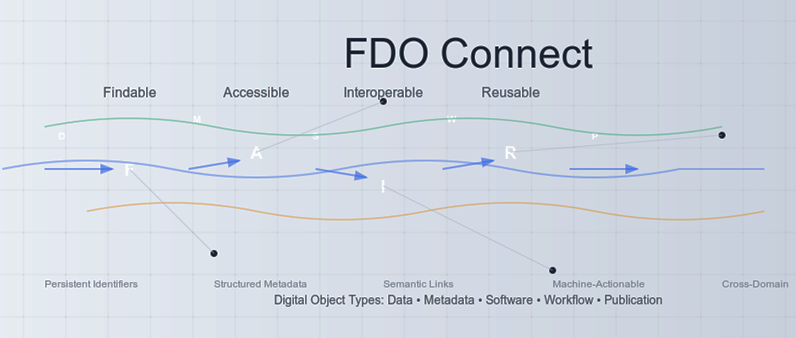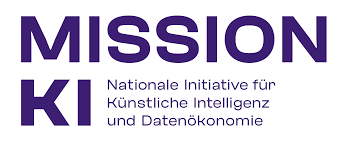FDO Connect aims to expand the practical use of FAIR Digital Objects (FDOs) and strengthen their strategic relevance. FDOs act as a universal data standard that enables the unification, identification, and interlinking of datasets across domains. The project aims to close implementation gaps, establish FDOs in diverse application areas, and explore initial commercial usage strategies.
The project is structured into four work packages:
- Infrastructure Development: Establishing a foundational infrastructure for publishing, managing, and linking FDOs, using nanopublications to represent layered metadata.
- Tooling: Developing a tool to automatically convert unstructured data into structured, machine-actionable FDOs.
- Cross-Domain Application: Applying the infrastructure and tools across multiple independent use cases.
- Evaluation and Dissemination: Assessing the FDO service architecture from legal and economic perspectives and preparing results for targeted audiences.
The name "FDO Connect" reflects three core integrations:
- Combining Handle-based FDO repositories with nanopublications,
- Linking databases and data spaces across domains,
- Enabling collaboration among leading actors in the FDO community.


